Planner is a programming language designed by Carl Hewitt at MIT, and first published in 1969. First, subsets such as Micro-Planner and Pico-Planner were implemented, and then essentially the whole language was implemented as Popler by Julian Davies at the University of Edinburgh in the POP-2 programming language. Derivations such as QA4, Conniver, QLISP and Ether were important tools in artificial intelligence research in the 1970s, which influenced commercial developments such as Knowledge Engineering Environment (KEE) and Automated Reasoning Tool (ART).
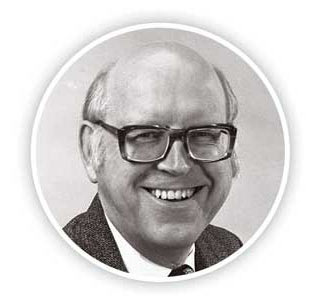
Allen Newell was a researcher in computer science and cognitive psychology at the RAND Corporation and at Carnegie Mellon University’s School of Computer Science, Tepper School of Business, and Department of Psychology. He contributed to the Information Processing Language (1956) and two of the earliest AI programs, the Logic Theory Machine (1956) and the General Problem Solver (1957). He was awarded the ACM's A.M. Turing Award along with Herbert A. Simon in 1975 for their basic contributions to artificial intelligence and the psychology of human cognition.

John McCarthy was an American computer scientist and cognitive scientist. He was one of the founders of the discipline of artificial intelligence. He co-authored the document that coined the term "artificial intelligence" (AI), developed the programming language family Lisp, significantly influenced the design of the language ALGOL, popularized time-sharing, and invented garbage collection.
Neat and scruffy are two contrasting approaches to artificial intelligence (AI) research. The distinction was made in the 70s and was a subject of discussion until the middle 80s. In the 1990s and 21st century AI research adopted "neat" approaches almost exclusively and these have proven to be the most successful.

The School of Informatics is an academic unit of the University of Edinburgh, in Scotland, responsible for research, teaching, outreach and commercialisation in informatics. It was created in 1998 from the former Department of Artificial Intelligence, the Centre for Cognitive Science and the Department of Computer Science, along with the Artificial Intelligence Applications Institute (AIAI) and the Human Communication Research Centre.
David H. D. Warren is a computer scientist who worked primarily on logic programming and in particular the programming language Prolog in the 1970s and 1980s. Warren wrote the first compiler for Prolog, and the Warren Abstract Machine execution environment for Prolog is named after him.

Robert Anthony Kowalski is an American-British logician and computer scientist, whose research is concerned with developing both human-oriented models of computing and computational models of human thinking. He has spent most of his career in the United Kingdom.
Patrick John Hayes FAAAI is a British computer scientist who lives and works in the United States. As of March 2006, he is a Senior Research Scientist at the Institute for Human and Machine Cognition in Pensacola, Florida.
Indeterminacy in concurrent computation is concerned with the effects of indeterminacy in concurrent computation. Computation is an area in which indeterminacy is becoming increasingly important because of the massive increase in concurrency due to networking and the advent of many-core computer architectures. These computer systems make use of arbiters which give rise to indeterminacy.
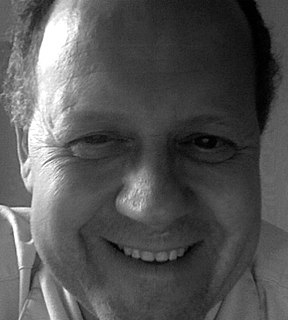
Michael Paul Fourman FBCS FRSE is Professor of Computer Systems at the University of Edinburgh in Scotland, UK, and was Head of the School of Informatics from 2001–2009.
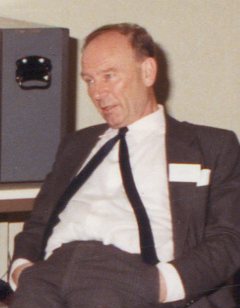
Donald Michie was a British researcher in artificial intelligence. During World War II, Michie worked for the Government Code and Cypher School at Bletchley Park, contributing to the effort to solve "Tunny", a German teleprinter cipher.

Alan Richard Bundy is a professor at the School of Informatics at the University of Edinburgh, known for his contributions to automated reasoning, especially to proof planning, the use of meta-level reasoning to guide proof search.
A deductive language is a computer programming language in which the program is a collection of predicates ('facts') and rules that connect them. Such a language is used to create knowledge based systems or expert systems which can deduce answers to problem sets by applying the rules to the facts they have been given. An example of a deductive language is Prolog, or its database-query cousin, Datalog.

Aaron Sloman is a philosopher and researcher on artificial intelligence and cognitive science. He held the Chair in Artificial Intelligence and Cognitive Science at the School of Computer Science at the University of Birmingham, and before that a chair with the same title at the University of Sussex. Since retiring he is Honorary Professor of Artificial Intelligence and Cognitive Science at Birmingham. He has published widely on philosophy of mathematics, epistemology, cognitive science, and artificial intelligence; he also collaborated widely, e.g. with biologist Jackie Chappell on the evolution of intelligence.
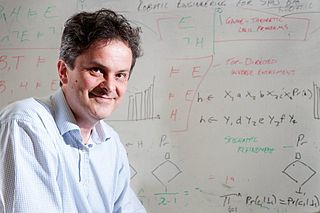
Stephen H. Muggleton FBCS, FIET, FAAAI, FECCAI, FSB, FREng is Professor of Machine Learning and Head of the Computational Bioinformatics Laboratory at Imperial College London.
Computational logic is the use of logic to perform or reason about computation. It bears a similar relationship to computer science and engineering as mathematical logic bears to mathematics and as philosophical logic bears to philosophy. It is synonymous with "logic in computer science".
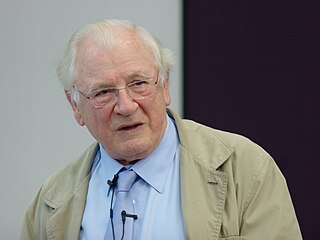
John Alan Robinson was a philosopher, mathematician, and computer scientist. He was a professor emeritus at Syracuse University.

Moshe Ya'akov Vardi is an Israeli mathematician and computer scientist. He is a Professor of Computer Science at Rice University, United States. He is University Professor, the Karen Ostrum George Professor in Computational Engineering, Distinguished Service Professor, and director of the Ken Kennedy Institute for Information Technology. His interests focus on applications of logic to computer science, including database theory, finite model theory, knowledge in multi-agent systems, computer-aided verification and reasoning, and teaching logic across the curriculum. He is an expert in model checking, constraint satisfaction and database theory, common knowledge (logic), and theoretical computer science.
Freddy (1969–1971) and Freddy II (1973–1976) were experimental robots built in the Department of Machine Intelligence and Perception.
Victor Witold Marek, formerly Wiktor Witold Marek known as Witek Marek is a Polish mathematician and computer scientist working in the field of theoretical computer science and mathematical logic.










